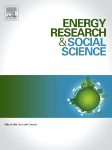
Homes as machines: Exploring expert and public imaginaries of low carbon housing futures in the United Kingdom
Catherine Cherry and Nick Pidgeon explore low carbon housing futures in the UK in the latest edition of Energy Research and Social Science. Read the full article here.
Abstract
Low carbon housing policies embody visions of the future that shape and constrain current choices between different technological pathways. These socio-technical imaginaries include expectations around new ways of living and interacting with technology, with implications for everyday lives. This paper investigates existing expert visions of low carbon housing, and explores these futures with members of the public; utilising empirical data from policy documents, expert interviews and public focus groups. Two competing expert visions of low carbon housing were identified: Passivhaus and Smart Homes. Whilst portrayed as divergent futures, both visions aimed to ‘design out’ the role of occupants, achieving emissions reductions through changes to the built environment and maintaining current lifestyles; a position that was reinforced by an imagined public that was unable or unwilling to accept the need for lifestyle change. This construction of the public did not consider the complex personal and cultural dimensions that influenced public acceptability of future housing: specifically surrounding themes of comfort, control and security that arose within the focus groups. The tensions arising between expert and public imaginaries highlight the difficulties that may surround any transition towards a low carbon future and demonstrate the need to work with, rather than around, the public.